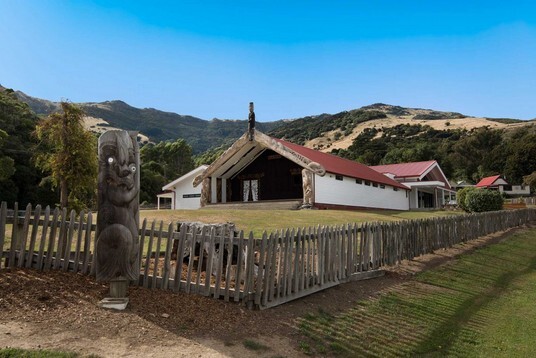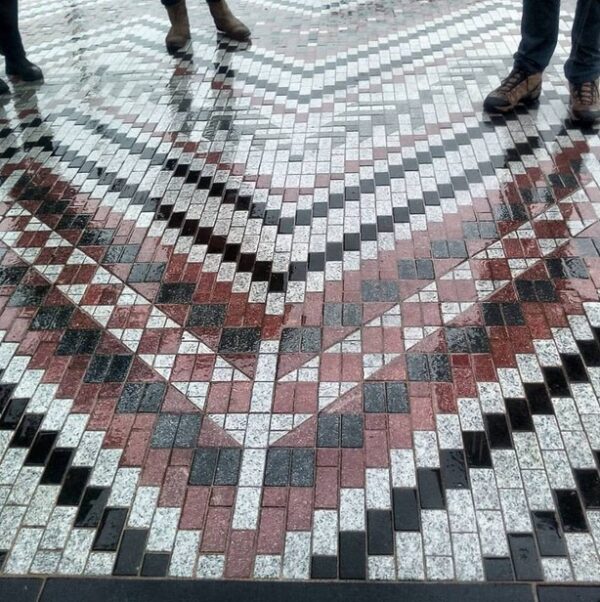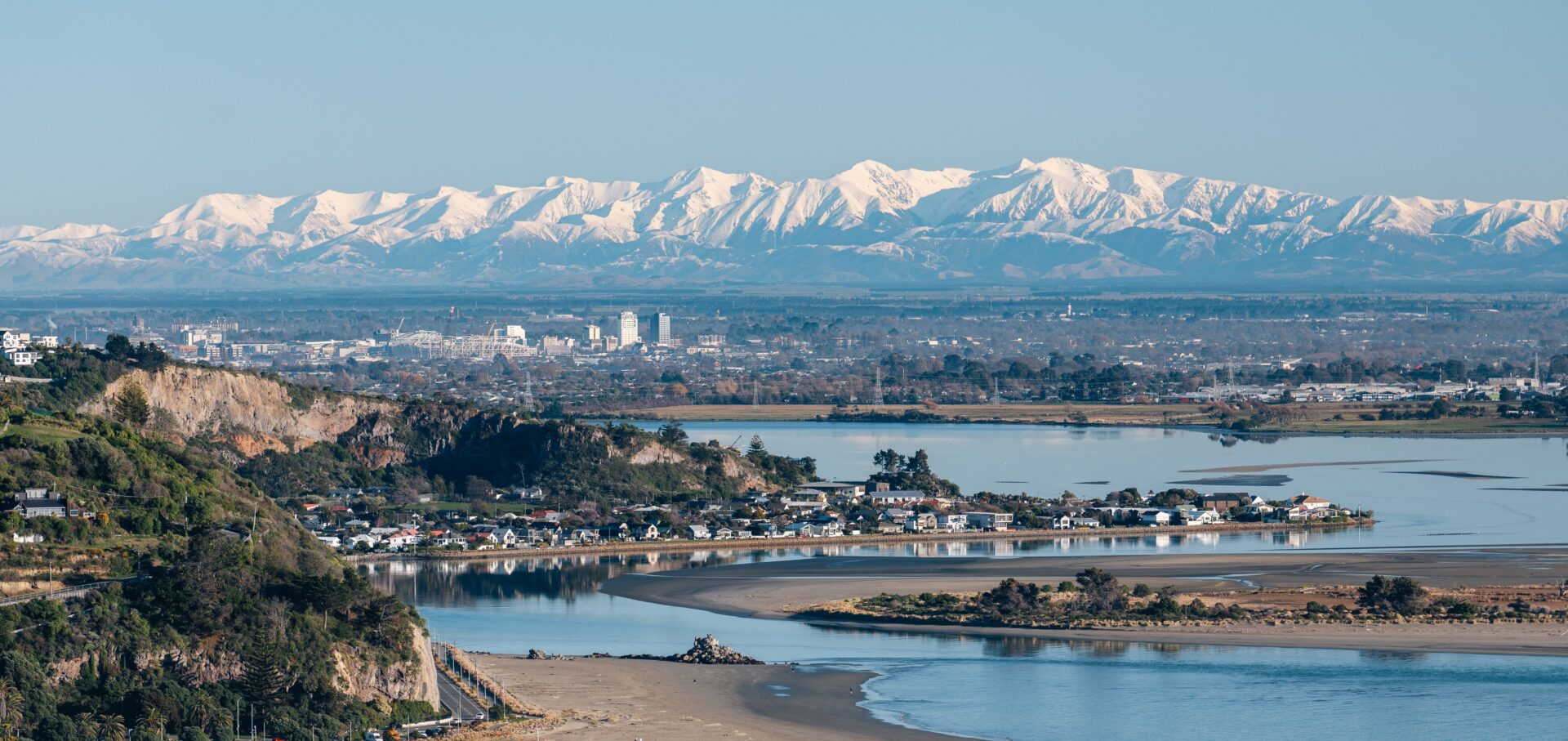Living Labs - INDIGENOUS INNOVATION AND LEADERSHIP
Te Kori a Te Kō - Redefining our sustainable, prosperous future
Location: Ōnuku Marae, Akaroa
Date: Thursday, 16 October
Time: 8:00am – 18:00pm
Cost: $65
Maximum numbers: 80
Details: Depart Town Hall at 8am for a 2 hour drive to Akaroa. You will return by 6pm. Lunch is provided at the Marae.
Meet at the Town Hall 7:45am
Leaders:
Debbie Tikao
Rik Tainui
Amiria Tikao (Rangatahi rep)
Keefe Robinson
 |
Te Kori a te Kō is the name of an indigenous-led climate change adaptation programme that is inspired by the past, reaching into origin stories, and gives voice to the connection to whenua and moana. It encapsulates five projects, all of which are centred on Akaroa Harbour as the compass, teacher and guide for this kaupapa. The five projects are interwoven to break down silos and apply holistic, multi-objective planning and thinking to climate change adaptation.
Delegates joined us at Ōnuku Marae for a full-day living lab that took you on a journey of Te Kori a te Kō, the programme flipped climate change adaptation planning on its head. It integrated both bottom-up and top-down frameworks, but most importantly, it started with action. From its conception, Te Kori a te Kō came from the position that hapū members would never read a plan; many were either frightened or disinterested in climate change. As such, a different approach to engagement had to be taken. The other position taken was that mātauranga taiao (traditional Māori ecological knowledge) and Western science had to be woven together and that growing knowledge in both is a critical component in building climate resilience.
Through wānanga, the programme brought together whānau, rangatahi, community leaders, climate science experts, local government representatives, and freshwater ecologists to share ideas, fears, and expertise and to start the conversation of how we can work collaboratively to shape a more resilient future.
Delegates also visited Takapūneke Reserve, a sacred site to Ngāi Tahu and a site of significance to the nation. Here you saw how the stories of place have been told through the landscape and how Ōnuku Rūnanga, with the support of Christchurch City Council and the wider community, have been re-cloaking this whenua to restore mauri and mana to people and place. Takapūneke is a living example of how powerful the interface between climate change adaptation, protection, and restoration of a sacred site, and the reclaiming of Indigenous identity through storytelling and art can be.
Ōnuku is located on the shores of Akaroa Harbour, home to hapū Ngāti Irakehu and Ngāi Tārewa and represented by Ōnuku Rūnanga. The takiwā of which, is centred on Ōnuku and the hills and coasts of the Akaroa Harbour.
Te Whakamahi o te Mātai Arorangi mō te Urutau Āhuarangi – Whakangungu, Rangahau, me te Ako-a-Tāngata
Enhancing Earth Observation for Climate Adaptation – Training, Case Studies, and On-Site Learning
Location: University of Canterbury and Kaitorete / Birdlings Flat
Date: Thursday, 16 October
Time: 8:30am – 16:00pm
Cost: $65
Maximum numbers: 40
Details: Depart Town Hall at 8.30am for University of Canterbury. After lunch (a packed lunch will be provided) you will head to Kaitorete, before returning to Town Hall by 4pm. This full-day Living Lab will explore Indigenous leadership in climate adaptation through a training session at University of Canterbury.
Meet at the Town Hall at 8:15am
Leaders:
Susanne Mecklenburg - Head of the Climate & Long-Term Action Division at European Space Agency (ESA) - https://climate.esa.int/en/
Julian Phillips - Tāwhaki National Aerospace Centre

This full-day Living Lab explored Indigenous leadership in climate adaptation through a training session at University of Canterbury with the European Space Agency (ESA) on climate data tools, followed by a research-focused session showcasing academic work that has engaged with Māori communities. The day concluded with a field trip to Tāwhaki – National Aerospace at Kaitorete/ Birdlings Flat, where innovation and Indigenous-led adaptation intersect. Through the lens of intersectional and community-led adaptation, we examined how factors such as gender, age, and socioeconomic status influence adaptation strategies, and how empowering communities strengthens climate resilience. Discussions highlighted resilience through cultural continuity, exploring how adaptation efforts not only mitigate climate impacts but also protect cultural heritage, maintain community cohesion, and prevent displacement in ways that honour Indigenous values. The workshop addressed capacity building and partnerships, identifying strategies that ensure long-term leadership, resource accessibility, and sustainable adaptation efforts. Participants engaged directly with Indigenous innovators, researchers, and policymakers who are shaping climate resilience initiatives. Aligning with the Indigenous Innovation and Leadership theme, this Living Lab provided a practical and immersive experience in how Indigenous knowledge—developed over generations—continues to inform cutting-edge adaptation strategies.
Traditional Knowledge and Rethinking City Design after Disaster
Location: Ōtautahi/Christchurch City Centre
Date: Thursday, 16 October
Time: 10:00am – 12:00pm
Cost: $45
Maximum numbers: 40
Details: Depart Town Hall at 10am for a 2 hour walk around the City Centre. You will return by 12pm.
Meet at the Town Hall at 9:45am
Leaders:
Joseph Hullen (Ngāi Tūāhuriri/Ngāti Hinematua)

This two-hour walk took delegates through the CBD of Ōtautahi/Christchurch and showed how the city has been transformed post-earthquake by incorporating the traditional knowledge of Ngāi Tahu into the city’s urban design. Joseph has spent a lifetime gathering traditional kai and hearing stories about his hapū. He shared his knowledge through the ways in which Ōtautahi/Christchurch reflects Ngāi Tahu identity and narratives through urban design, art, landscape and architecture.
Key Dates
Early Bird Registration Closes
15 July 2025
Adaptation Futures Conference
13 - 16 October 2025
